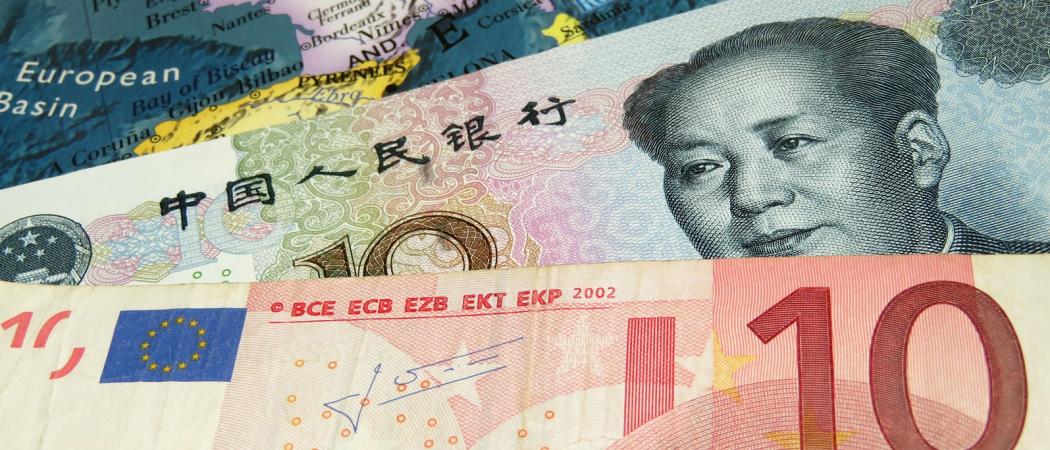In new report, European business association warns of EU falling behind in global innovation race, as China’s state-led economy soars ahead

European companies say the EU will not be able to compete with China unless Horizon Europe gets a budget of at least €120 billion and member states commit to investing three per cent of their GDP in national R&D programmes.
In a new report, BusinessEurope, the EU’s most influential corporate lobby group, says anything below the proposed R&D spending targets is not enough to address the EU’s innovation deficit and to compete with China.
“Our strategy paper is meant to reinforce the process of rebalancing our relationship with China,” said Markus Beyrer, director general of BusinessEurope.
Chinese government expenditure on R&D is growing fast and the private sector in the country is funding more R&D than European countries. In 2017, the total EU expenditure on research and development was equivalent to 2.07 per cent of GDP, while in China it was 2.13 per cent.
In addition to demands for a total budget of €120 billion for Horizon Europe, companies want the EU to stimulate more private investment in R&D and put more emphasis on the industrial pillar and key enabling technologies in the research programme.
In an interview with Science|Business, EU commissioner for research and innovation Mariya Gabriel said the European Commission will continue to defend its proposed research budget of €94.2 billion in the Council negotiations. However, Gabriel hopes member states will ultimately support the €120 billion figure as, “the best gift Europe could make to itself.”
The report also says government intervention in the Chinese economy poses “systemic challenges” leading to “market distortions” that undermine the level-playing field between EU and Chinese companies. “China’s emergence in technology is both a source of opportunity for our businesses and a growing challenge for the future,” the report says.
Demands for reciprocity
China is poised to take the lead in artificial intelligence and gene editing, increasing its global influence. Meanwhile, despite its world-class performance in basic science and foresight-based public policy, Europe is falling behind in the global innovation race. “China is becoming a powerhouse in some key areas of research, development and innovation,” the report says.
The European business sector is frustrated at China’s refusal to open up its research and innovation to foreign applicants, despite recent global trends towards internationalisation of science and research.
European R&D projects are generally open to third-country participants, while Chinese funding programmes favour “indigenous innovation”. Companies want that to change and urge the EU to put more pressure on China to allow “reciprocal access” to Chinese-funded projects.
Trojan horse in the east
China has recently upped its investment in central and eastern Europe, particularly through its Belt and Road Initiative – a global development strategy by the Chinese government to build infrastructure that connects Asia with Africa and Europe – but also through setting up collaborative projects in science and technology.
As part of this increased collaboration, China recently announced that Fudan University will open its first overseas campus in Hungary, signalling its interest in strengthening its science and technology foothold in central and eastern Europe.
But European companies complain they are blocked out of Belt and Road investments. They are calling for fairer competition and predictable rules in tenders, and also want to see China setting higher environmental standards in its projects. “Member states should call on China to increase reciprocity,” the report says.
The increase in Chinese investments in Europe could pose a security concern for the EU, according to Wojciech Przybylski, editor-in-chief of Visegrad Insight, an EU policy debate platform in central Europe. “Leaders in the countries of the region are lured by big promise of China that often come with personal gains,” Przybylski said.
Investment in central and eastern Europe is a way to gain a foothold in the EU research ecosystem. “Accessing the [EU] research market gives China an advantage in a world where advanced knowledge and innovation is real power,” said Przybylski.
Poor IP protection
The report also warns of another growing concern in relation to China, with European companies saying intellectual property rights (IPR) are not sufficiently enforced and the practice of forced technology transfer is on the rise.
A recent report by the European Commission acknowledged government and state-owned companies pressurise foreign firms to transfer technology to China in exchange for market access, investment access or regulatory approvals. China also forces foreign companies to license technology below market rates, as a pre-condition to access and operate in certain markets.
According to BusinessEurope, the number of reported cases of forced technology transfer doubled between 2017 and 2019.
Companies say the EU should “strongly condemn” Chinese IPR policies that require access or transfer of patents, trademarks, trade secrets and software source codes as a precondition for market access.
The report also laments the lack of regular and consistent research on Chinese government, its economy and the R&D sector. Companies want the EU to establish a dedicated research team to “adequately and systematically analyse the economic, political and security implications of Chinese policies on the EU at regular intervals.”





 A unique international forum for public research organisations and companies to connect their external engagement with strategic interests around their R&D system.
A unique international forum for public research organisations and companies to connect their external engagement with strategic interests around their R&D system.